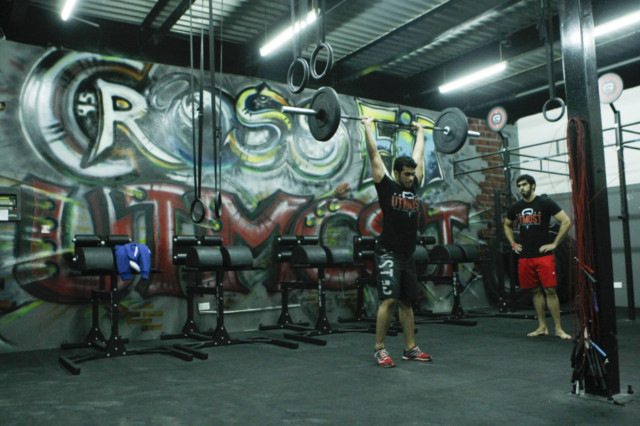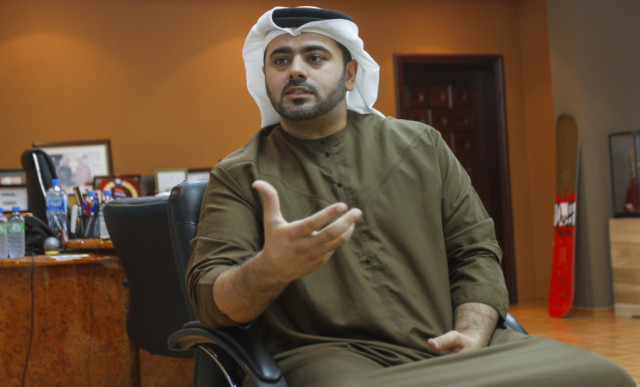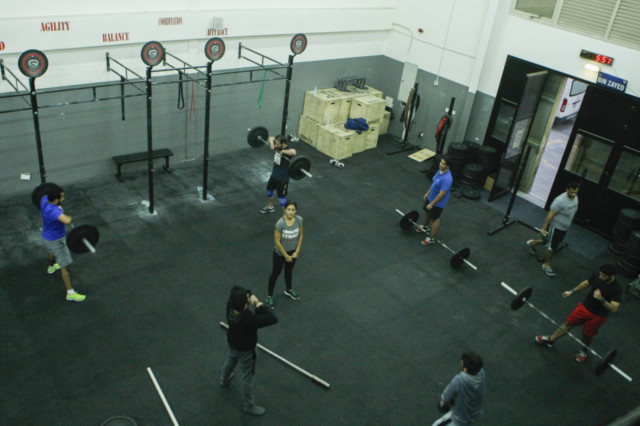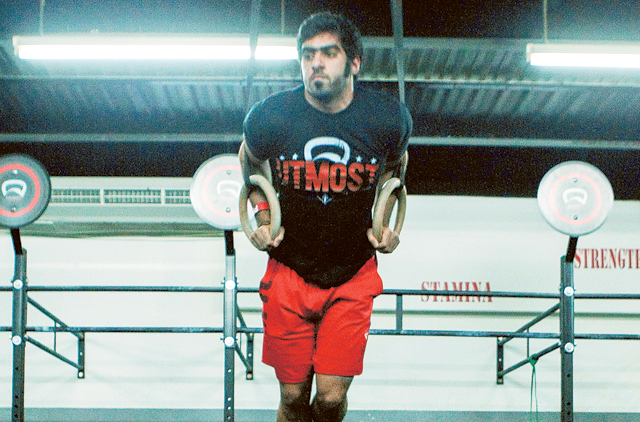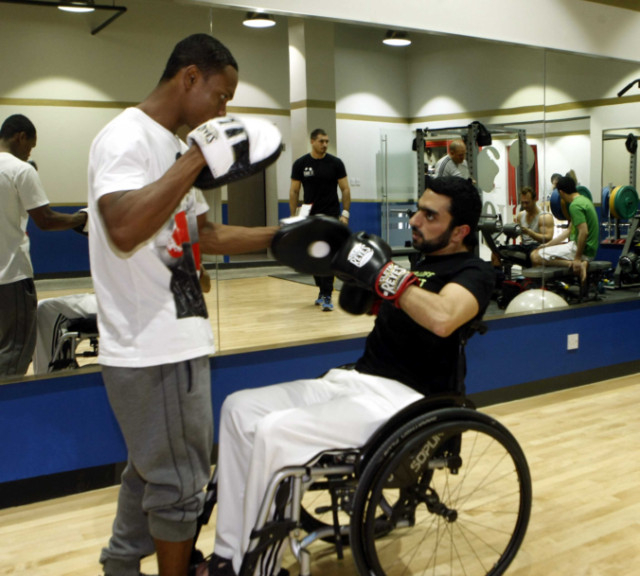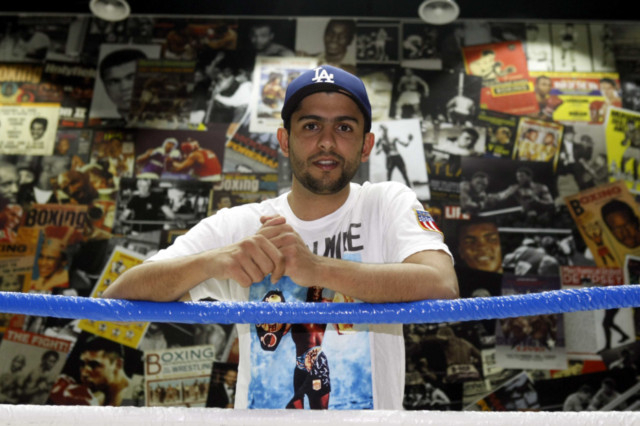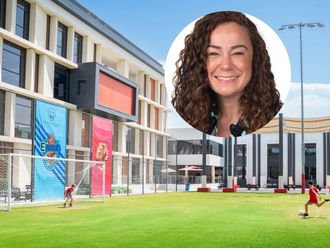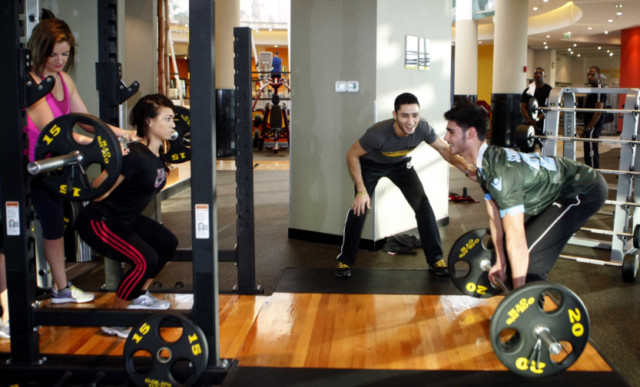
Dubai: Ali Bin Zayed used to be fat. Now he has a six-pack and is a gym owner.
The 20-year-old UAE national is part of a trending youth culture battling obesity in the Emirati community.
Emirati gym operators told Gulf News fitness is coming into fashion. And it couldn’t have arrived en vogue sooner.
Emiratis have one of the world’s highest obesity rates, with related diseases on the rise too.
Official UAE obesity figures are not readily available, but various estimates — by doctors, health organisations and researchers — say anywhere between 25 and 33 per cent of the population is overweight or obese.
Now, more and more Emiratis want to buck that trend like never before.
Bin Zayed, co-owner of CrossFit Utmost training centre in Dubai, said every week he meets someone new who has opened a gym or fitness club.
“If you see last year, there were three cross-fit gyms in the UAE. Right now, we have 12 such gyms within one year, almost all of them opened by Emiratis,” he said.
Bin Zayed said the trend got a boost from Dubai Fitness Competition, a regular contest for Emiratis in a variety of sports. It is an initiative of Shaikh Majid Bin Mohammad Bin Rashid Al Maktoum, chairman of the Dubai Culture and Arts Authority.
“Every week there’s a competition with prizes now. Everyone’s thinking about getting fitter so they can compete.”
There are, of course, other reasons behind more Emiratis taking up fitness, Bin Zayed added.
“Everyone’s coming here [CrossFit Utmost] as a community to have fun. Other than that, they want to lose weight, look good. [Our members] have certain goals: gymnastics, doing muscle ups, handstands, build stamina, strength,” he said.
But there are just as many factors keeping the youth out of gyms.
“They work from 8am till 3pm in the government sector. They go back home tired. They don’t walk, they use cars.
“So you get back home and then what: you eat, feel sleepy and say it’s too hot to do something outside. So it’s just general laziness as well.”
He added: “You have time but it’s about how you use that time. If you finish work, just go to the gym for half an hour.”
“The attitude [towards fitness] needs to change. It is changing but it is not going to change in a day… I saw this change happening in the past four years.”
Bin Zayed said many Emiratis only start training after getting diagnosed with a chronic illness such as diabetes or high cholesterol.
“Take care of your health before someone else has to take care of it,” he added.
Bulging business
The country’s biggest Emirati-run fitness chain, Gold’s Gym UAE, had just two branches — one for ladies, the other mixed gender — two years ago.
“Now we have 17 locations and 33,000-plus members. By the end of this year, we’re looking to double that capacity to 60,000,” said Mohammad Khammas, 38.
The Emirati businessman, who is also a fitness enthusiast, said UAE nationals are passionate about sports but need more options to put it into practice.
“For example, UAE nationals today, typically the first thing they open in a newspaper is the sports section. That means the interest, intellectually, is sports.
“How do you convert that interest into a ‘social house of fitness’? Gyms are not an overall category of the fitness industry. We want to create something where there’s room for everyone.”
He explained that the future of fitness in the UAE, especially among Emiratis, is a more social and family-oriented membership scheme that allows access to gyms, sporting events, corporate and college leagues, to name a few.
“So, if you start in the very near future to take membership from us [for example], that membership is for a number of activities, not just for going to the gym,” Khammas said.
“It’s where the package speaks to your requirements. In that sense, you’ll have a lot of people who will do that, they’ll be active.”
He added: “I can’t give you a complete breakdown right now, but in some branches, as high as 60 per cent of members are Emirati.
“Remember, the percentage of expats to UAE nationals is extremely huge and it’s getting higher. So don’t expect the participation [ratio] will be so different, it won’t be.”
But, he admitted, it’s hard to gain more clients in fitness. “It just goes against any basic human nature. Usually, people pay money to get a return. Convincing someone you’re paying to sweat, that the reward is a healthier you — not everyone gets it.”
Some Emiratis only sign up because the situation turns serious, Khammas added. “They get it when it becomes a problem: when they start suffering from high blood pressure, diabetes, back pain or muscular pain. Then they start to think ‘maybe it’s time to take my health seriously’.”
Khammas said Emiratis used to be a much healthier community, but lifestyle changes — junk food, sedentary jobs, home entertainment, motorised transport — changed all that.
He said: “The offering two generations ago was much less in terms of what you could do at home. If you wanted to have fun, you ran to the beach, to the farms, or to the valleys.
“We were extremely active, not by choice. We had to be active outside because there was nothing to do inside the house.”
Khammas added: “Now, between online games, social media, TV, gaming consoles, all of these things make us, in many ways, vegetate inside the house… [That affected] locals more because going to the gym is not our culture.”
Still, government awareness campaigns, fitness events and a more self-conscious community are starting to drive the point home, Khammas said. He also praised a number of members of Dubai’s ruling family for championing the cause — by becoming champion sportspersons themselves.
“If you get everyone to talk about health, you’ve done a good job already… Now we have no reason not to be healthy. So, if we decide, we are actively deciding not to be healthy.
“People are not that silly, they are getting aware. They want to look good, they want to feel good.”
He said the national health card would have been even poorer today had it not been for the changes taking root a few years ago.
Group support
Emirati boxing club operator Ahmad Seddiqi, 29, said UAE nationals need more specialised facilities and training so they can “go pro”.
He runs the Round10 Boxing club in Dubai. The facility is registered with the UAE Boxing Federation, he said.
“We have the right UAE nationals training to compete nationally and internationally. We have world class trainers… That’s the reason I opened [Round10 Boxing], to have rising stars from the UAE,” said Seddiqi.
“[I support] showing Emiratis that if they compete and work hard, they can reach a level where they can use it as a career. I think that’s motivating a lot of people.
“I think the support from the different sports organisations we have here — no matter if it’s financial or doing events — is crucial because we do have great athletes here. Once they see there’s no support, they just stop and go enjoy doing other things.”
To keep trainees engaged, Seddiqi said he places practice over profits. “Honestly, from my side, I do get some people who can’t afford to pay for membership. But I just let them train for free because they love the sport. Of course, I take them through a testing period to see if they are committed or not,” he explained.
“My main reason is passion for the sport of boxing. It was more of a passion but once I opened [Round10 Boxing], it’s turning into a business. I didn’t know there would be interest from so many people.”
Emirati women, as a group, are a “big part of my ladies boxing fitness classes. In fact, all of them are Emirati. The numbers depend on day to day - sometimes 30, sometimes 80, five, or 10.”
He added: “They are a mixed age group, and fit and not fit. We’re the only pure boxing-only club in Dubai. It was not fair to not have something for the ladies only.”
Talking about UAE nationals’ interest in fitness in general terms, Seddiqi said the trend started in a small way some five years ago, as a fad more than anything else. “More people were inspired on seeing others join [fitness clubs]. Especially here in the UAE, I realise that people follow trends. They see a group doing something, then they follow them. And another group sees them and it adds up, adds up and adds up.
“This is a good thing, not a bad thing, especially as it comes to health and fitness.”


